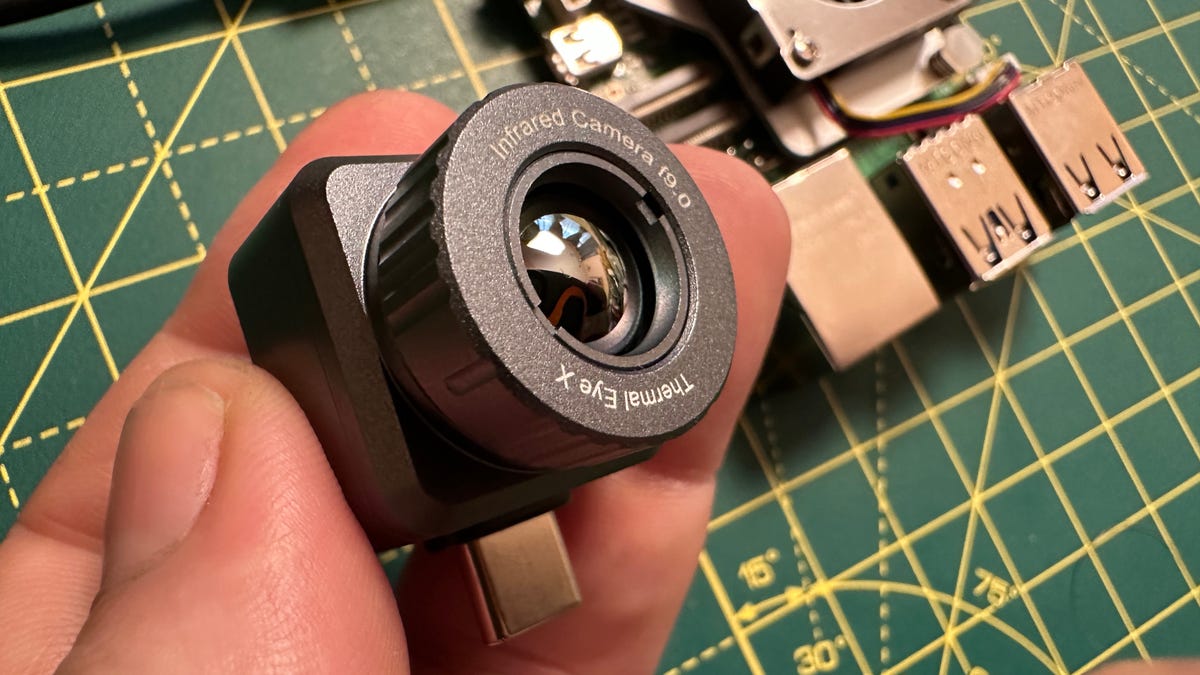BOOK THIS SPACE FOR AD
ARTICLE ADThis is one well-designed mic.
ZDNET's key takeaways
The Shure MV7+ Podcast Kit (Gen 2) is available now for around $299 on Amazon.The Shure MV7+ mic delivers broadcast-quality sound with the right features to help level up your podcasts.The MOTIV Mix app could use a bit of love, but works fairly well.
As someone who's dealt with mics for decades, Shure is always a sure bet. The company has developed and released so many outstanding microphones over the years that any time I see the name, I feel confident in the product I'm about to test or use.
Such was the case when I unboxed the MV7+ Podcast kit. Before plugging the mic into my MacBook Pro, I felt confident I knew how well it would perform -- and it did not disappoint.
Also: Everything you need to start a podcast
This mic isn't going to usurp my CAD E100S mic as that device sets a high bar to clear. At this price point, though, and for the intended market, you'd be hard-pressed to find a better podcasting mic.
Let's dive in.
View at AmazonThe specs
Cardioid pickup pattern48 kHz/24-bit audioPhysical and digital pop filter
Customizable color LED touch panel
Dynamic mic capsule
USB-C and XLR outputs
3.5mm jack for direct monitoring
DSP for auto-level and noise reduction
Price - $299 on Amazon for Gen 2
Includes gator stand and USB-C cable
My experience
Instead of just plugging the mic into my laptop and diving in, I decided to go ahead and download the Shure MOTIV Mix app (which is in beta). The app allows you to configure the mic and record. The app is fairly bare-bones but effective for configuring various settings such as gain, reverb, tone, Real-Time Denoiser, Popper Stopper, High Pass Filter, and customizable LEDs.
You have two output options (XLR and USB-C) and a single 3.5mm headphone jack for real-time monitoring.
After the installation, I plugged the mic -- via the included USB-C cable -- into my MacBook Pro, plugged in a pair of headphones, and opened the app. With the headphones on, I was immediately inundated with sound. A quick check on the app showed the mic defaults to Auto Level for gain.
My immediate reaction was, "This mic is hot." My voice sounded authoritative and sure from six to 12 inches away. If I got too close, the sound was overpowering. I discovered that if you disable Auto Level gain control, you can adjust the level manually, but I found Auto Level was solid, so I left it enabled.
Also: How to record a call on your iPhone (and check if it's legal in your state)
I felt that the default tone was a bit bright, so I darkened it to 40%, which was the sweet spot for my voice. Every voice will sound different, so I recommend you play with the Tone setting (which is why you'll want to install the app).
I did several test recordings, and here's what I found:
The real-time monitoring through headphones plugged into the mic isn't 100% representative of what the recording will sound like. I found the recording to sound considerably better than the real-time monitoring. I think this happens because the real-time monitoring doesn't enjoy the audio processing from within the app. So, when you first start using the mic, don't judge the sound by the real-time monitoring.The Real-Time Denoiser works very well. I did tests with it enabled and disabled, and the enabled test produced a cleaner sound without ambient noise. This result is crucial when you record in a room with a higher noise floor.The High Pass Filter works well to remove other noises (such as HVAC sounds) and has three options: Off, 75Hz, and 150Hz. You'll want to try all three settings to get the right match for your environment. I used the 75Hz setting, which knocked out most of the AC noise in my room.
The Popper Stopper was surprisingly effective at eliminating mouth noise, such as plosives.
The recordings are saved in the WAV format, so they'll be larger than MP3s.
The mic has plenty of richness and depth, especially after adjusting the tone to fit your voice.
The LED touch interface makes it easy to quickly mute the mic with a single tap, a welcome addition for podcasters.
The question is whether I would use this mic as my go-to podcast option. The answer is a resounding "Yes," but only if I didn't have my CAD mic. Because the Shure MV7+ can connect via USB-C and XLR, it's far more flexible than my XLR-only CAD. That flexibility means the Shure MV7+ would probably be my first choice when recording on the go. I can't think of a better option for a mobile podcast setup. This mic has a nice, rich tone, and is a plug-and-play joy to set up.
Also: The best podcast apps
I recommend that you use the MOTIV Mix app (even though it's in beta) because you get far more control over the mic's sound than you would with the MacOS or Windows sound controls.
ZDNET's buying advice
If you're getting into podcasting or want to improve the quality of your recordings, you'd be hard-pressed to find a more effective, easy-to-use mic. At this price point, the Shure MV7+ Podcast Kit is a steal. Not only do you get an outstanding mic, you get a stand and a USB-C cable. The stand does have a short range of extension (maybe 3") but it's rock solid, so it'll keep the mic steady. If you make this podcasting mic your next purchase, you won't regret it.
.png)
 4 months ago
25
4 months ago
25 















 Bengali (Bangladesh) ·
Bengali (Bangladesh) ·  English (United States) ·
English (United States) ·